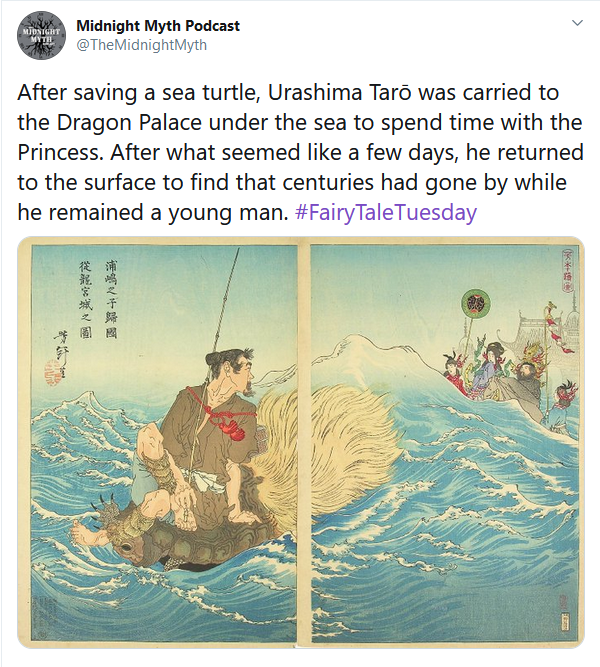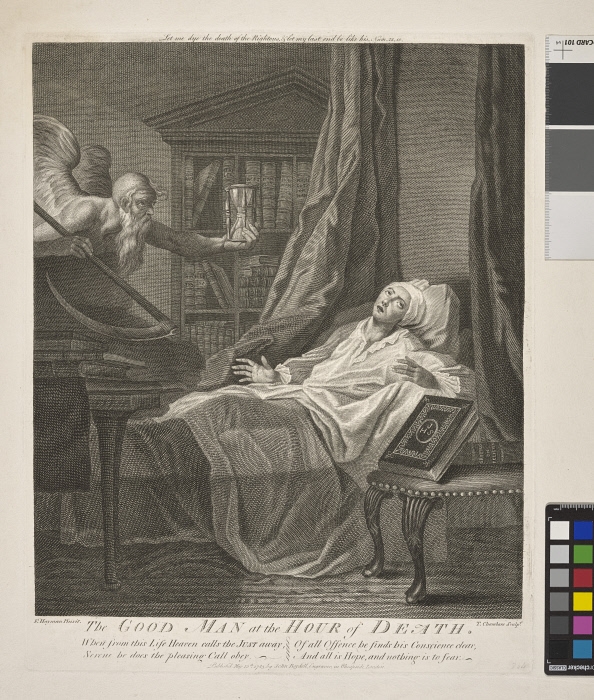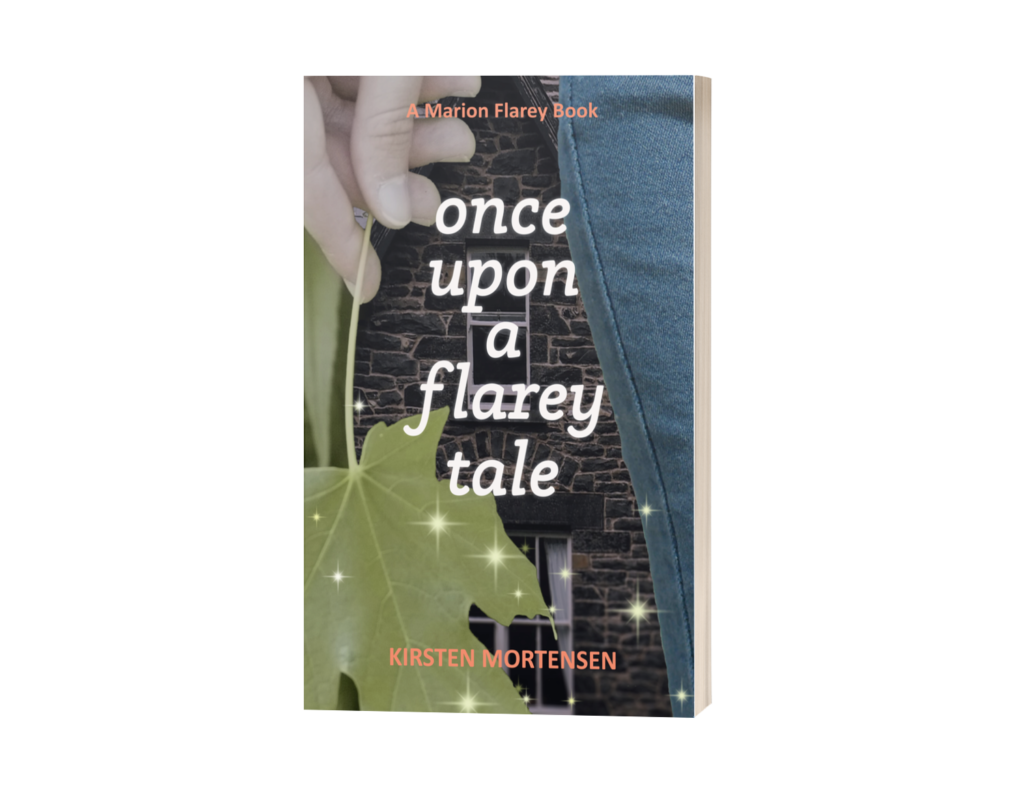On Twitter, Midnight Myth Podcast (podcast can be found here) shared a Japanese story for yesterday’s #Fairytaletuesday.

I was struck by the beauty of the illustration, of course, but also by the fact that missing time crops up in so many folklore traditions, across so many cultures.
But wait! There’s more.
What if fairy tales like this one actually encode powerful secrets?
What if stories like this one are more than “just stories”?
You may be aware, for instance, that missing time crops up outside of folklore. People literally experience missing time when they stumble into certain kinds of paranormal phenomena — they have subjective experiences of time that don’t match up to the linear passage of time in “the real world.” Missing time is an almost universal aspect of UFO abductions, for example.
After a ferocious mental struggle, during which she literally tried to crawl out of the house as she could no longer walk, all went dark. When she woke up, it was hours later. She never found out what happened to her during that missing time.
— The Super Natural: Why the Unexplained is Real, Whitley Strieber and Jeffrey J. Kripal
Which brings me to a question I’ve been tussling with for over a year now, as I build out my Marion Flarey books — a three-novel collection that will debut when I publish Once Upon a Flarey Tale in a month or so. [UPDATE: it’s out and you can get your copy here!]
What if fairy tales hold clues to the nature of reality — and how to manipulate it?
What if they are actually templates that — in the right hands — can be used to harness and direct emotional and spiritual energy in ways that shape reality itself?
Marion Flarey seems to think so. She detects a power in fairy tales that nobody else seems to “get” (well — almost nobody!) — but that also tends to blow up in her face when she tries to wield it. :)
And here’s where — to me at least — it gets interesting.
I think she’s right.
Or put another ways: these books are fiction, but they are also true. I am not writing “paranormal.” I’m writing reality — or let’s call it quantum reality :D
Here’s what I mean, using the missing time template as an example.
If you study the template, you can feel the energy behind it. Quite a lot of energy, some negative (anxiety) and some positive (time pressure can be a powerful motivator).
In some stories, like the one Midnight Podcast shared, the energy is partly sexual. It’s about the power of sexual love-matches to make us completely forget — completely abandon — other loyalties and ties.
The handsome they like, and the good dancers. And if they get a boy amongst them, the first to touch him, he belongs to her.
— Mr. Saggarton, as told to Lady Gregory, Visions and Beliefs v. 1
The missing time template also warns us to be conscious about the trade-offs we make when we decide to take a particular life-path.
You can’t take two paths at the same time. Once you have invested time exploring one path, you can never get that time back. It’s gone forever.
She hastened homewards, wondering however, as she went, to see that the leaves, which were yesterday so fresh and green, were now falling dry and yellow around her. The cottage too seemed changed, and, when she went in, there sat her father looking some years older than when she saw him last; and her mother, whom she hardly knew, was by his side …
— The Elfin Grove, from The Big Book of Stories from Grimm, ed. by Herbert Strang
There’s a profound emotional poignancy, here. When we leave our birth homes, those we loved when we were children will, in our absence, grow and age and eventually die. And we’ll miss that, because we were elsewhere — we were Away.
Because of the poignancy of this trade-off, missing time is also related to death, naturally (what isn’t?): whether we permit ourselves to be aware of it consciously or not, we are all on some level keenly aware that our time on this planet is finite. Sooner or later, Mr. Death is going to knock on the door and whatever we are working on at that moment will remain forever unfinished.

It’s scary, right? Because life isn’t fair and and the trade-offs we make, when we decide how to spend our time, are often downright cruel.
But there is one small comfort in this rather ugly mess: we have the ability to consciously shape our personal stories — the stories that, in turn, become the channels through which our lives flow.
In other words, we don’t have to be carried passively toward the inevitable penalties of Lost Time. We can recognize those penalties in advance; we can accept them with open eyes as the price we pay for a choice we consciously make.
Will this make those penalties less painful?
Rip’s heart died away, at hearing of these sad changes in his home and friends, and finding himself thus alone in the world. Every answer puzzled him too, by treating of such enormous lapses of time, and of matters which he could not understand: war—Congress–Stony–Point;—he had no courage to ask after any more friends, but cried out in despair, “Does nobody here know Rip Van Winkle?”
— Rip Van Winkle, Washington Irving
Nope. Still gonna hurt.
But it will make the experience of suffering those penalties one of conscious choice. We can therefore consciously acknowledge the richness of life’s tapestry, which is woven not only of beauty and joy and pleasure, but also of ugliness and loss and pain. And that’s something. It’s quite a lot, in fact …
This is what Marion is trying to do.
It’s hard for her, just like it’s hard for us.
It’s also absurd, and confusing, and funny, and has a tendency to backfire :)
But ultimately it’s as rewarding for Marion as it can be for you and I.
Because the better we get at shaping our stories consciously, the more aligned we become with our own sense of place, and our own sense of destiny.
And what could be a better HEA than that?
UPDATE: My first Marion Flarey novel is now out!

“Once Upon a Flarey Tale” is available on Amazon for print or Kindle, or click here to browse other e-formats.
